
Reading Time: 9 minutes
Hey there, car lovers! Welcome to Car Care Month, where we’re all about keeping your precious ride in tip-top shape. Today, we’re diving into the engine’s lifeblood: the engine oil and filter.
Proper maintenance of your engine oil and filter is essential for your car’s performance, efficiency, and longevity. We, at Nationwide Auto Transportation, are here to guide you through the process, offering you our expertise and top-notch services.
Rev Up Your Engine | Oil and Filter Care for Car Care Month
Car Care Month is the ideal time to focus on your auto’s engine. Why? Because it is often overlooked during regular maintenance. A well-maintained engine ensures a smooth and enjoyable driving experience.
So, let’s get started on understanding the importance of engine oil and filter maintenance, and how Nationwide can help you stay on top of it!
Let’s break down the basics:
- What exactly is the purpose of engine oil and filter?
- How do you know when it’s time for a change?
Understanding Engine Oil and Filter Change
Purpose of Engine Oil and Filter
The engine oil plays several critical roles in your car’s engine, including:

Lubrication: It helps reduce friction between the engine’s moving parts, preventing wear and tear.
Cooling: By circulating through the engine, it dissipates heat, protecting the engine from overheating.
Cleaning: Engine oil contains detergents that help remove debris and keep the engine clean.
Sealing: It helps maintain a tight seal between the piston rings and cylinder walls.
Now, let’s talk about the oil filter. Its primary job is to remove contaminants from the engine oil, ensuring clean oil flows through the engine. A clean filter is vital for the proper functioning and longevity of your engine.
Nationwide Auto Transportation provides a comprehensive auto transport service. This means less use of both your engine oil and filter, ensuring your car runs smoothly and efficiently. Get a fast and free car shipping quote provided by our state of the art car shipping calculator now.
🚗 Update for 2023! Looking for the latest on car shipping costs? Dive into our comprehensive guide on Average Car Shipping Costs 2023 for up-to-date rates, trends, and insights. Stay informed with Nationwide Auto Transportation – your trusted partner on the road!
Signs That It’s Time to Replace the Engine Oil and Filter

Knowing when to change your engine oil and filter is essential to prevent damage and maintain peak performance. Here are some signs that it might be time for an oil/filter change:
- Dark and dirty oil: Check the oil on the dipstick. If it appears thick, dark, and dirty, it’s time to replace engine oil and filter
- Increased engine noise: Engine oil provides a cushioning effect. If you hear increased engine noise or knocking, it could be due to low or degraded oil.
- Excessive mileage or time since the last oil change: Consult your vehicle’s owner manual for the recommended oil change intervals based on time or mileage.
- Check engine or oil change light: If either of these lights appears on your dashboard, it’s a clear indication that you need an oil change.
When you notice any of these signs, it’s time to take action! Nationwide Auto Transportation is here to help you with our top-notch engine oil and filter change services. Don’t wait until it’s too late – schedule an appointment today!
Do you Know How Often to Change Engine Oil and Filter?
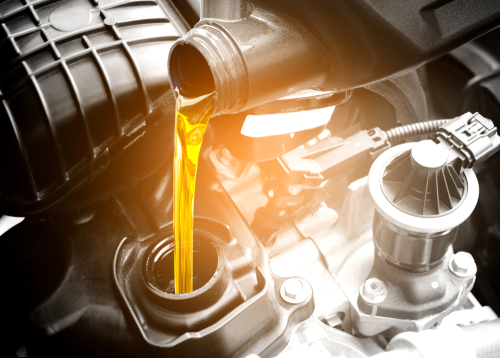
The frequency of engine oil and filter change depends on various factors. It’s essential to find the right balance to maintain your vehicle’s performance and avoid unnecessary expenses. It is always handy to learn a new skill, like how to change engine oil and filter in a car.
Factors Affecting the Frequency of Change
- Vehicle manufacturer recommendations: Consult your vehicle’s owner manual for the recommended oil change intervals based on time or mileage. It’s crucial to follow these guidelines to keep your engine running smoothly.
- Driving conditions: If you frequently drive in extreme temperatures, stop-and-go traffic, or dusty conditions, you may need to replace engine oil and filter more often.
- Type of oil: Synthetic oils typically last longer than conventional oils. If you’re using synthetic oil, you may be able to extend the time between oil changes.
- Age of your vehicle: Older vehicles may require more frequent oil changes due to less efficient engine components.
Different Types of Engines (Gasoline, Diesel)
Do you know how often to change engine oil and filter in a car? The frequency of oil changes may also differ based on the type of engine your vehicle has:
- Gasoline engines: Most gasoline-powered vehicles require an oil change every 3,000 to 5,000 miles or every three to six months, whichever comes first. However, some newer models with advanced engine technology can go as long as 7,500 miles or more between oil changes.
- Diesel engines: Diesel engines usually require oil changes at a slightly shorter interval, typically every 3,000 to 6,000 miles, depending on the make and model. These engines generate more soot and contaminants, necessitating more frequent oil changes.
Nationwide Auto Transportation offers expert advice and services for shipping your vehicle, regardless of the engine type. Check out our blog posts on cars and shipping.
Step-by-Step Guide | How to Replace Engine Oil and Filter in a Car

Do you know how to change engine oil and filter in a car? Changing your engine oil and filter is an essential part of car maintenance. With some basic tools and a little time, you can perform this task at home. Here’s a step-by-step guide on how to do it:
Preparation
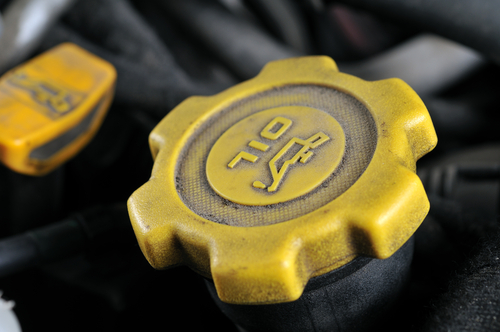
Gather necessary tools and materials:
You’ll need:
- a wrench
- oil filter wrench
- drain pan
- funnel
- clean rags
- a new oil filter
- and the appropriate amount and type of engine oil for your vehicle.
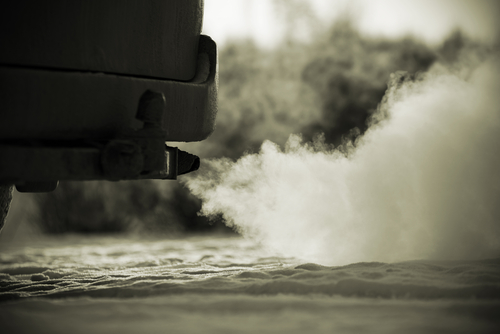
Warm up your engine:
Run your car for a few minutes to warm up the oil, making it easier to drain. Apply the parking brake and put wheel chocks or blocks behind the tires to prevent the car from rolling.
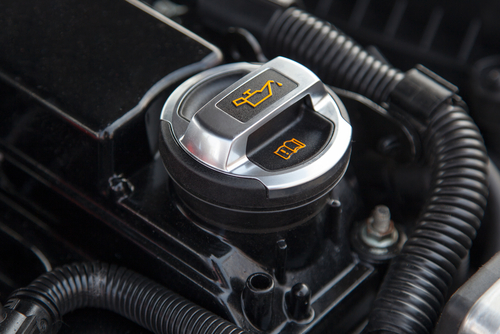
Locate the oil filter and engine oil pan: Consult your owner’s manual to find the location of these components.

Draining the Old Oil
- Place the drain pan under the oil pan to catch the old oil.
- Remove the drain plug using a wrench, and let the oil flow into the drain pan.
- Once the oil has fully drained, clean the drain plug and replace the gasket if necessary. Reinstall the drain plug and tighten it securely.
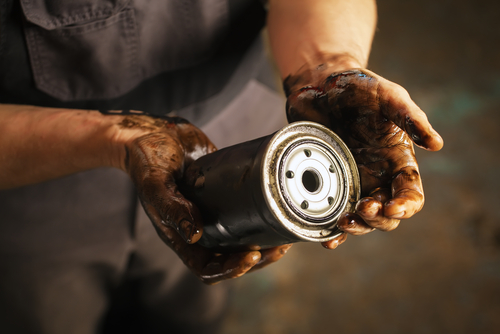
Changing the Oil Filter
- Use an oil filter wrench to loosen the old oil filter.
- Remove the filter by hand, being careful not to spill any remaining oil.
- Clean the filter mounting surface with a clean rag.
- When installing a new oil filter, apply a thin layer of new engine oil to the gasket of the new oil filter. This helps ensure a proper seal and prevent leaks.
- Install the new oil filter by hand, then tighten it using the oil filter wrench. Be careful not to overtighten.
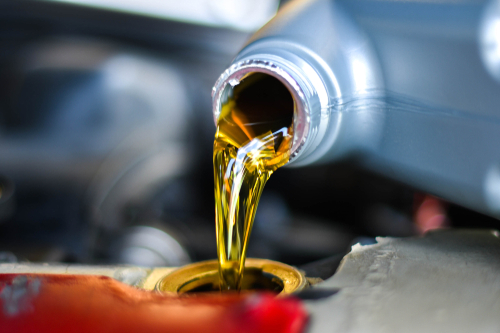
Adding New Engine Oil
- Remove the oil filler cap from the top of the engine.
- Place the funnel into the oil filler hole.
- Pour the recommended amount of new engine oil into the funnel, allowing it to flow into the engine.
- Replace the oil filler cap and tighten it securely.
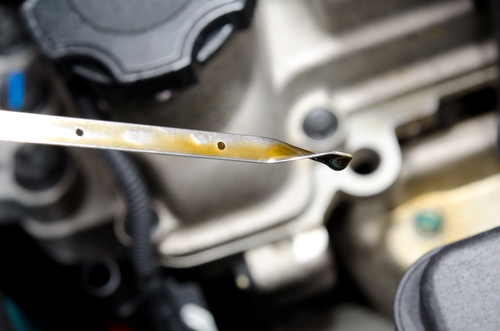
Checking the Oil Level
- Start your engine and let it run for a few minutes to circulate the new oil.
- Turn off the engine and wait a few minutes for the oil to settle.
- First, remove the dipstick and wipe it clean. Then, reinsert it fully.
- After that, pull the dipstick out again and check the oil level. Make sure that it falls between the “min” and “max” markings on the dipstick.
Congratulations! You’ve successfully changed your engine oil and filter. To save time and effort, consider scheduling regular oil and filter changes. On the other hand, an expert technician can also ensure your car runs smoothly and efficiently.
The Cost of Engine Oil and Filter Change
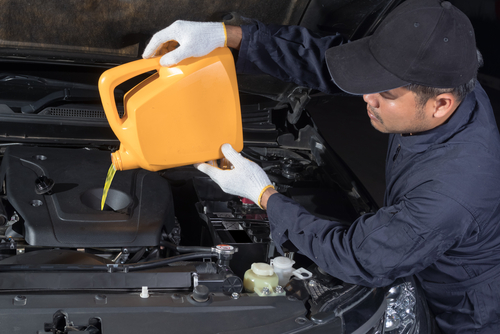
Maintaining your vehicle includes regular engine oil and filter changes. The cost of these services can vary depending on whether you choose to do it yourself or hire a professional. Let’s break down ‘replace engine oil and filter cost of both options’.
Engine Oil and Filter Change Cost
The cost of an engine oil and filter change at a professional service center can range from $30 to $100 or more, depending on factors such as:
- The type of oil (conventional, synthetic blend, or full synthetic).
- The quality and brand of the oil filter.
- The make and model of your vehicle.
- The labor cost in your area.
In addition to the basic oil and filter change, some service centers may offer a complimentary inspection of your vehicle’s other fluids and components.
DIY Costs vs. Professional Replace Engine Oil and Filter Costs
Performing an engine oil and filter change yourself can save you some money. Here’s a breakdown of the DIY costs:
- Engine oil: Depending on the type and amount needed, this can range from $15 to $60.
- Oil filter: Quality oil filters typically cost between $5 and $15.
- Other supplies: A drain pan, funnel, and oil filter wrench can be purchased for around $20 to $40 in total.
Replace engine oil and filter cost explained
In total, doing the oil and filter change yourself could cost between $40 and $115, depending on the oil and filter you choose.
While the DIY route may save you some money, it also requires time, effort, and the proper tools. Additionally, disposing of the used oil can be an inconvenience. By law, you need to take it to a designated disposal facility.
Hiring a professional service offers the benefits of convenience, expertise, and additional vehicle inspections. Moreover, professional technicians will ensure the proper disposal of used oil and filters.
Expert Opinion on Engine Oil and Filter Maintenance
“The importance of engine oil and filter maintenance is often understated. Oil is the lifeblood of your engine, reducing friction, protecting against wear and tear, and keeping internal components clean. The filter plays a crucial role in trapping contaminants that can cause damage to your engine. Regular maintenance, including changing the oil and filter, is essential for maximizing the lifespan and performance of your vehicle.” – Tom Torbjornsen, Automotive Expert, Author, and Host of “America’s Car Show.”
Importance of Regular Oil and Filter Changes
“One of the simplest and most effective ways to maintain your vehicle’s performance and reliability is to adhere to a regular schedule of oil and filter changes. By doing so, you’re ensuring that your engine remains well-lubricated, clean, and protected against potential damage caused by contaminants. Neglecting this vital aspect of vehicle maintenance can lead to costly repairs, reduced fuel efficiency, and even engine failure.” – Pat Goss, Automotive Expert and Host of “Goss’ Garage” on MotorWeek.
Remember that Nationwide Auto Transportation is your go-to choice for all your auto transportation needs. Whether you’re moving across the country or just need to transport a vehicle, we offer a range of services tailored to meet your specific requirements. Get a free quote for your car shipping needs today!
Keep Your Engine Purring | Changing Your Engine Oil and Filter for Car Care Month
So there you have it, folks! We’ve explored the ins and outs to replace engine oil and filter cost. What else, is that we highlighted their crucial role in keeping your ride running smoothly and efficiently. Regular maintenance is the key to a long-lasting and happy relationship with your vehicle.
Don’t forget to show your car some love by staying on top of those oil and filter changes. Your engine will thank you for it, and you’ll be rewarded with a reliable and fuel-efficient ride for years to come.
Important Websites
- Did you know that the Car Care Council is a non-profit organization that provides information and resources to educate consumers about the importance of regular vehicle care? Their website is a great resource for articles, tips, and videos on car care and maintenance. URL: https://www.carcare.org/
- The Federal Motor Carrier Safety Administration is a government agency responsible for regulating and providing safety oversight of commercial motor vehicles (CMVs) in the United States. Their website offers valuable information on safe driving practices and industry regulations. URL: https://www.fmcsa.dot.gov/
Ship During Car Care Month and Save
Ready to ensure your vehicle is in top condition while it’s on the move? Nationwide Auto Transportation has got you covered! While you take care to replace engine oil and filter cost this Car Care Month, let us take care of your car shipping needs.
Get a fast, free, no-obligation quote for our top-notch auto transport services today. Experience the peace of mind that comes with trusting your vehicle to the industry’s best. Click here to grab your free quote now and join thousands of satisfied customers who’ve chosen Nationwide Auto Transportation for their car shipping needs.



